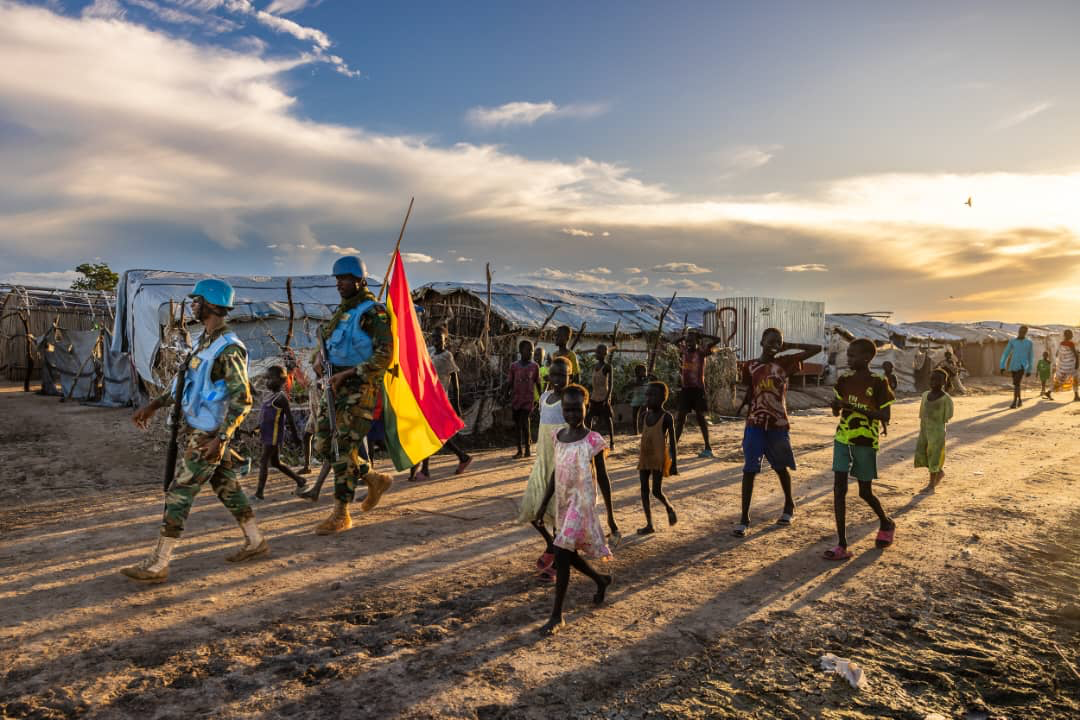UN Peacekeeper Day: Championing partnership, shaping a peaceful future – Nsemkeka
The International Day of UN Peacekeepers is an annual observance dedicated to honouring all men and women who have served and continue to serve in United Nations peacekeeping operations.
It acknowledges their high level of professionalism, unwavering dedication, and profound courage, and pays solemn tribute to the memory of those who have made the ultimate sacrifice in the cause of peace.
The first UN peacekeeping mission, the UN Truce Supervision Organisation, began operations in Palestine on 29 May 1948. In 2002, the UN General Assembly, in its resolution 57/129, designated 29 May as the International Day of UN Peacekeepers.
Since then, UN offices, alongside Member States and non-governmental organisations, have held solemn ceremonies to honour the service and sacrifice of peacekeepers.
Over the years, more than two million peacekeepers have served with unwavering commitment to guiding war-torn societies toward peace.
Today, over 76,000 military and police personnel from around the world serve in 11 UN missions, working to uphold security, dignity, and hope amid global crises, ranging from terrorism and climate change to displacement and human rights challenges.
Ghana is the 7th largest contributor of uniformed personnel to UN Peacekeeping.
It currently deploys more than 2,600 military and police personnel to the UN peace operations in Abyei, the Central African Republic, Cyprus, Lebanon, the Middle East, Somalia, South Sudan, West Africa, Western Sahara, and Yemen.
This year, Peacekeepers Day in Ghana is on the theme: “The Future of Peacekeeping: Strengthening Partnership and Multilateralism in Ghana and Beyond,” signalling a forward-looking approach to tackling evolving global challenges.
It also suggests that for UN peacekeeping to be successful in addressing future global conflicts, member states must improve and deepen collaboration between all relevant actors (partnerships) and reaffirm their commitment to countries working together through established international frameworks (multilateralism).
Indeed, Ghana serves as a notable example of these principles in action. Ghana has a proud and longstanding legacy of contributing personnel to UN peacekeeping operations, spanning troops, police, immigration, and prison officers, since the late 1960s.
This enduring commitment reflects Ghana’s deep-rooted dedication to multilateralism and international partnership.
Ghana was among the first nations to respond to the UN’s call for peacekeeping forces in the Congo, deploying troops just 48 hours after the Security Council passed the resolution establishing the mission.
In 2004, Ghana further demonstrated its leadership in peacekeeping by establishing the Kofi Annan International Peacekeeping Training Centre, a key institution for sharing Ghana’s decades of experience and learning from the expertise of other nations.
Ghana’s active role in UN peacekeeping extends to championing the participation and leadership
of women in peace operations. Ghanaian women peacekeepers have not only increased their
representation in missions but have also achieved historic milestones.
Notable examples include Captain Cecilia Erzuah, who received the 2022 UN Gender Advocate Award; and Major General Anita Asmah, currently serving as Force Commander of the United Nations Disengagement Observer Force (UNDOF) in Syria.
Others are the late Brigadier General Edjeani-Afenu, who served as Deputy Force Commander of the United Nations Mission for the Referendum in Western Sahara (MINURSO), and Commodore Faustina Boakyewaa Anokye, who served as Deputy Force Commander of MINURSO.
Continuing this tradition of excellence, the United Nations has named Squadron Leader Sharon Mwinsote Syme of Ghana the 2024 Military Gender Advocate of the Year, as announced in a recent UN press release.
These female peacekeepers, the thousands of peacekeepers before them, and those still serving
have earned global respect for their professionalism and dedication.
Ghana’s story will undoubtedly serve as an inspiring example during the upcoming observances taking place all over the world.
Sadly, where the UN flag was once a symbol of security, it now risks making peacekeepers a target, and some were killed in hostile incidents.
The evolving nature of these conflicts demands innovative solutions and, crucially, strengthened alliances.
This involves renewed commitment to collaboration between member states, the United Nations, regional organisations like the African Union and ECOWAS, and a diverse range of stakeholders, including civil society and local communities.
Insights from the “Future of Peacekeeping” report will likely underscore the need for more proactive, responsive operations, embracing technology, enhancing communication, and ensuring inclusive participation, especially by women.
Beyond ending conflict, peace operations play a vital role in protecting vulnerable populations, rebuilding institutions, restoring the rule of law, and supporting democracy, foundations for lasting development and human potential.
On May 29th, we call for renewed global commitment, urging nations to invest in both political will and the resources needed to support brave peacekeepers.
It is a moment to reaffirm our collective resolve to pursue a future where partnership and multilateralism lead the way to enduring peace, from Ghana to every corner of the world.

